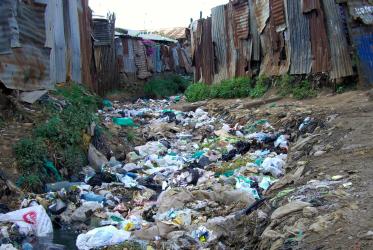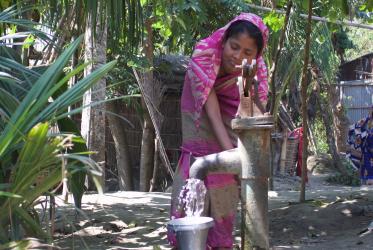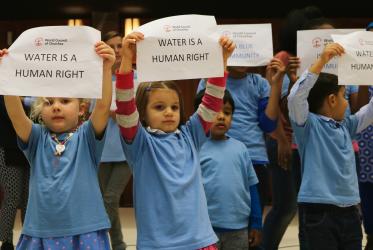Displaying 1 - 20 of 26
09 February 2024
Climate crisis fuels existing water injustice
27 October 2021
Youth amplify #NoDAPL movement in Standing Rock
22 April 2021
On World Toilet Day, sanitation is “an issue of justice”
16 November 2020
New WCC “Eco Ambassadors” pledge to protect our ecology
06 January 2020
WCC condemns massacre of farmers in Philippines
12 April 2019
Pan African Women of Faith issue fervent Call to Action
20 November 2018
G20 summit: call to pray for peace in Hamburg
07 July 2017
World Social Forum sows seed of hope in global north
17 August 2016
Winners of WCC photo contest announced
09 May 2016
Consultation considers right to food in context of climate change
15 December 2015














